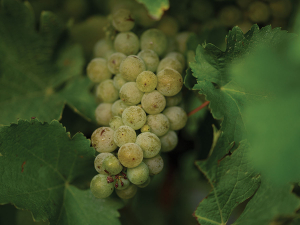Genetic modification has long been a topic of hot debate.
Historically, techniques to manipulate or modify genetic material within an organism were viewed with suspicion. However, as new genetic technologies emerge and are commercialised, this scepticism has lessened. Techniques have become safer, more precise and those applying them possess a stronger understanding of the potential benefits/risks. There is now a growing acceptance that not all genetic technologies present the same types of risks, and the potential benefits for human and environmental health could be significant.
In late 2024, the Government introduced a new Gene Technology Bill to Parliament seeking to modernise how gene technologies are regulated within New Zealand. The objective was to facilitate the development and commercialisation of these technologies by establishing a new regulator to assess applications for use and set standards on these within a new risk tiered system. The Bill mirrors the Australian Gene Technology Act that has been in place since 2000 and reflects a greater alignment with how other international jurisdictions assess genetic technologies. Importantly, the Bill itself does not approve any new technologies, it merely creates a system that could enable such approvals.
This represents a shift from the status quo of the Hazardous Substances and New Organisms Act 1996, which takes a restrictive blanket approach to genetic technologies with tight restrictions on limited approvals. Critics say this has unduly restricted the ability for New Zealand to innovate and apply new low risk technologies in both health and agriculture settings where there may be significant benefits. However, there are always risks in new technologies, and both sides of the coin need consideration.
So, what does this mean for winegrowers? A more nuanced regulatory framework could have significant benefits for research and innovation in the industry, particularly in mitigating the significant current and future impacts of climate and environmental pressures on viticulture.
A 2019 Royal Society Te Apārangi expert report on gene-editing for the primary industries identified CRISPR-cas9 as an example of a low-risk gene-editing technology gaining international traction. This technique edits existing DNA to produce naturally occurring traits that are indistinguishable from conventional selectively breeding. If applied to vines, the precision of this technique could allow promotion of desirable resilience traits such as drought and disease resistance, producing more resilient vines, with the effect of lessening reliance on water use, and herbicides/pesticides in the vineyard.
A new regulatory environment is not without risk. New Zealand’s wine industry reputation is heralded for exporting high value, sustainably produced wines that attract a premium in our over 100 international markets. Great care is required that these changes do not get ahead of both market and consumer expectations.
This begins by safeguarding the existing trade and market arrangements to ensure any changes in technology and how we produce our products do not undermine these. New Zealand Winegrowers (NZW) recognises that organic producers have concerns on how changes may impact the management of supply chain traceability and certification when seeking to remain ‘GE free’.
NZW has, with the input of Bragato Research Institute, submitted on these key points during public consultation, and recently appeared before the Health Select Committee considering the Bill. We had hoped to consult with members more extensively; however, the parliamentary timeframes did not allow for this.
Notably, our submission supports a new regulatory framework but makes it clear such support is conditional on risks to trade arrangements and market access being addressed directly in the legislation. This included an obligation for the regulator to consider any impacts on trade and market access when assessing a technology.
A delicate balance is required to protect what we have, whilst moving from a restrictive status quo approach that presents its own significant risks. There is a clear risk in not seeking alternatives to effectively address the significant climate and environmental pressures faced, and to maintain our competitive advantage as other international markets consider greater uptake of gene technologies.
The Select Committee report is due to Parliament on 17 June 2025, and we expect the Bill will pass later this year. As the Select Committee considers the near 15,000 written submissions, a dedicated NZW work programme will expand the conversation on genetic technologies within the industry. Over the coming months we will be engaging with members to further outline what a new regulatory environment will look like and hear views on the potential application of low-risk technologies within this. The NZW Board has agreed to set up a working group that will lead the focus on these topics to eventually inform a NZW gene technologies policy that reflects these views.





